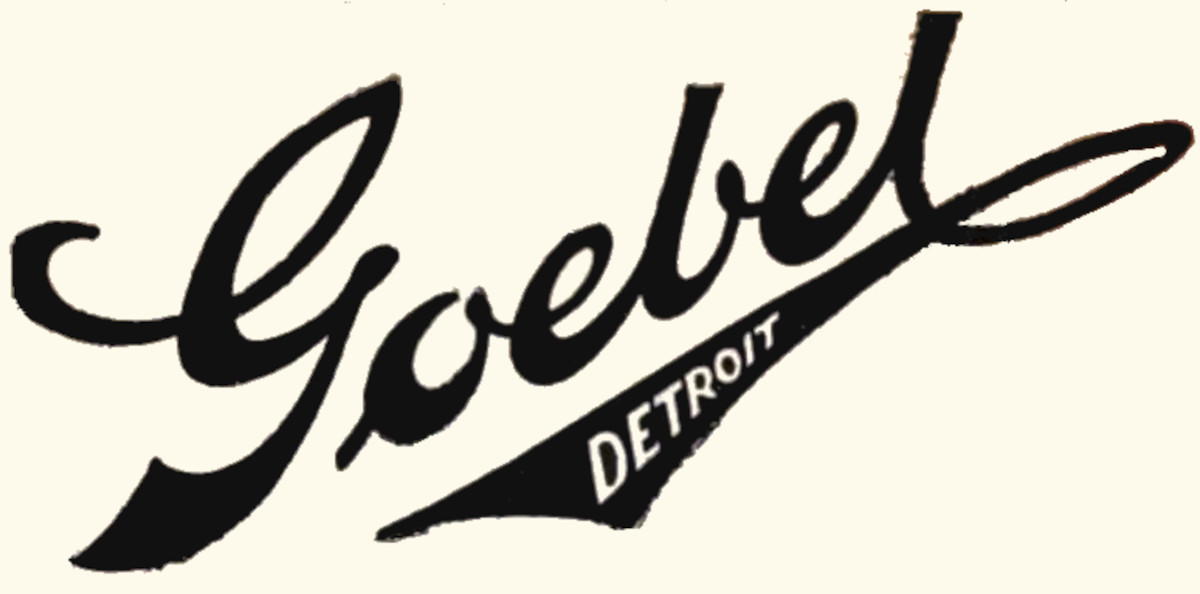The Goebel Brewing Company was one of the leading beer producers in Detroit, Michigan, during the late 19th and early 20th centuries. Goebel beer was founded in 1873 by German immigrants August Goebelohn Goebel and Theodore Gorenflo. The brewery quickly established itself as a leading producer of high-quality beers, ales, and lagers.
Table of Contents
August Goebel’s Early Life
August Goebel Sr. came to the United States at 17 years old after being born in Münstermaifeld, Rhenish, Prussia, in 1839. He supposedly started in the direction of Chicago but ran out of money en route and ended up in Detroit. Gobel joined the Union Army’s 2nd Michigan Infantry Regiment at the start of the Civil War. He fought at Bull Run. He worked his way up to the rank of colonel.
A Beer for Michigan’s German Immigrants
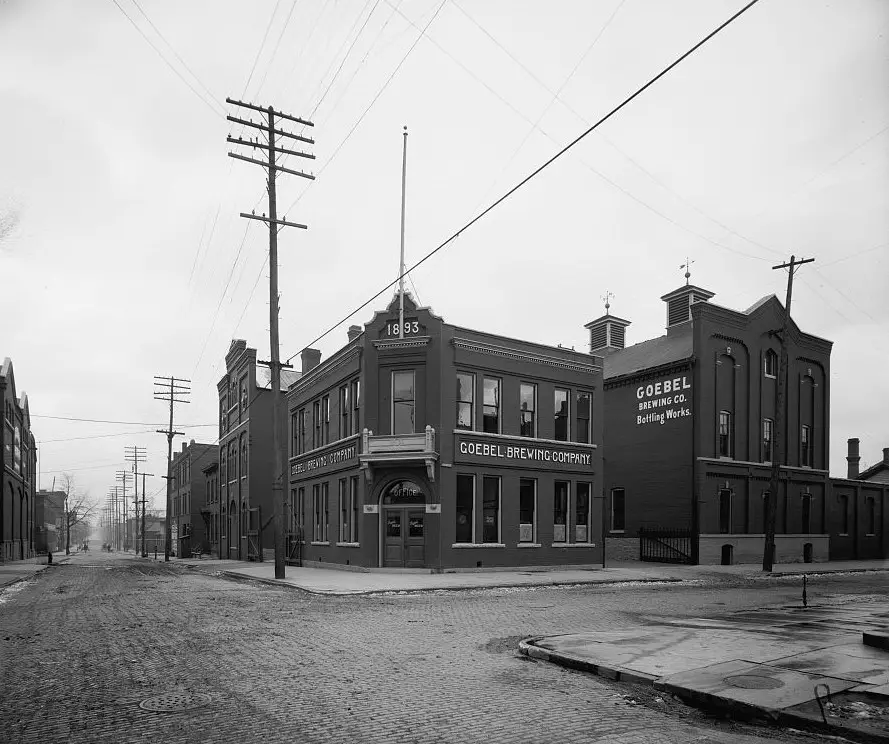
In its early years, the brewery primarily served the German-American community in Detroit, which had grown significantly since the arrival of the first German immigrants in the 1840s. Goebel’s beers were well-received by this community, which appreciated their traditional German flavor profiles.
As the brewery grew in popularity, it expanded its reach beyond Detroit and into other parts of Michigan and the surrounding states. By the turn of the 20th century, Goebel was one of the largest beer producers in the region, with a production capacity of more than 200,000 barrels per year.
The Goebel Brewing Company was known for more than just its beer. It was also known for its impressive brewery facilities. The main building of the brewery was built in 1888. It was a tall brick building with a modern brewery and bottling plant inside. Underground, the building had a complex network of tunnels and caves used to store and age beer.
Prohibition Delivers a Knockout Punch
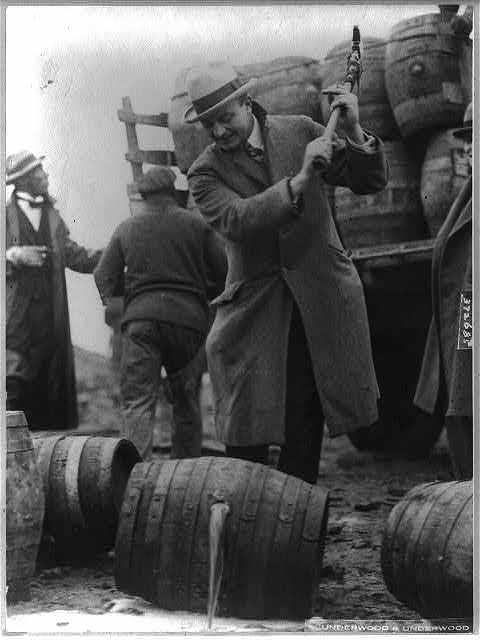
Even though it was successful, the Goebel Brewing Company had to deal with several problems at the beginning of the 20th century. The national movement against drinking and the passing of the Prohibition Act in 1919 was horrible for the brewery business. Like many other breweries across the country, Goebel was forced to close its doors, and its facilities were converted to other uses.
After Prohibition ended in 1933, the Goebel Brewing Company took over a year to reopen its brewery and start making beer again. However, the company struggled, and a new brewmaster was hired from Stroh Brewery to help Goebel get back on its feet.
Goebel Beer Grows After Prohibition
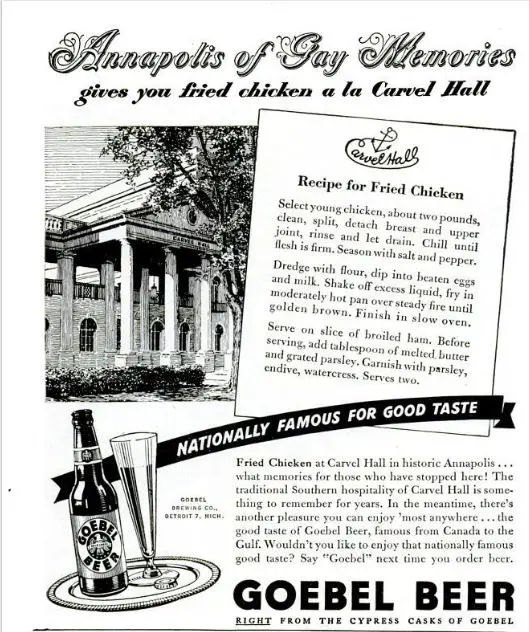
The beer was popular in Detroit from the start of the company, but Goebel’s advertising made it even more popular, and for a short time in the 1940s, it was sold in many states. An ad campaign in Life magazine featured restaurant ads from many famous eateries nationwide using Goebel beer as an ingredient. The beer billed as a “light lager,” was golden in color and was noticeably drier than most everyday beers of the era.
In the early 1960s, the company changed how it made beer and developed a popular draft-style beer. The technique involved using bacteria to kill the yeast after fermentation had completed. This kept the beer from exploding in the bottle and gave bottled and canned beer a smooth, draft-like flavor. However, the bacteria contaminated the entire plant, and the process had to be discontinued.
Brewster Rooster
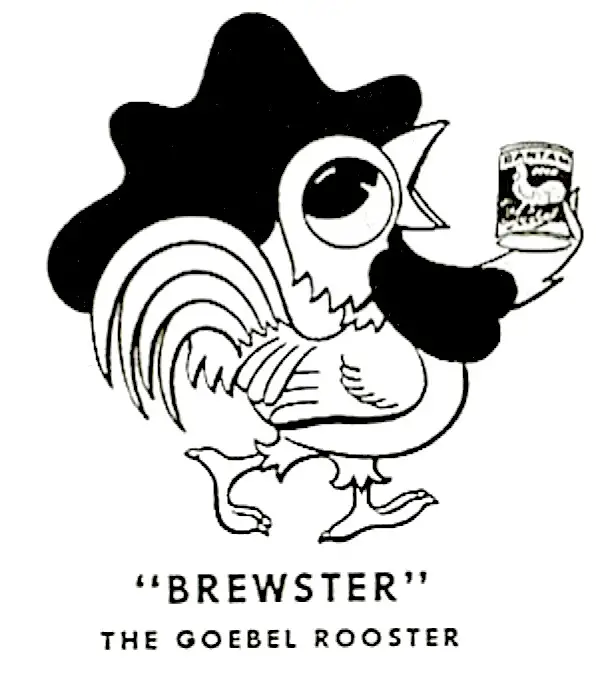
Brewster Rooster was the distinctive and recognizable brand mascot for the Goebel Brewing Company. He was a rooster shown holding a stein of Goebel beer and was used by the company to advertise and promote its products. The rooster was likely chosen as the mascot for its association with waking up and starting the day, which could have been seen as a nod to the refreshing and invigorating qualities of Goebel beer.
Brewster Rooster probably stood for the Goebel brand by being colorful and fun, and he helped the company make a memorable and recognizable image. Over time, the Brewster Rooster became a symbol of the Goebel brand, and he is still a well-known and recognizable part of the company’s history and legacy.
Goebel Beer’s Final Years
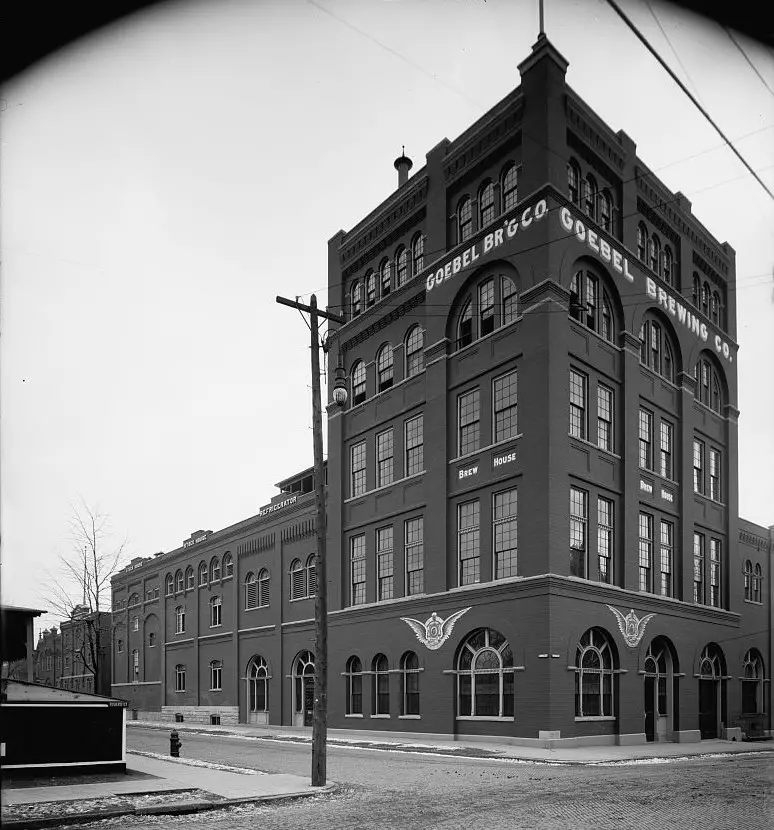
Stroh Brewery acquired Goebel in 1964. Shroh’s continued to produce beer as a low-cost brand. In the 1980s, a case of Goebel beer in bottles could be had for as little as $8. It included a heavy wax-covered cardboard case that college students used to hold 8-track and cassette tapes. Pabst Brewing Company acquired Stroh ad discontinued the brand in 2005.
Video: Goeble Beer TV Commerical 1958
Final Thoughts on Goebel Brewing of Detroit, Michigan
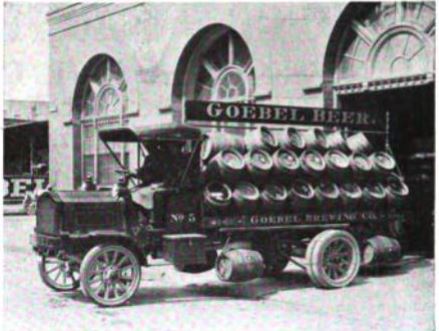
Today, the legacy of the Goebel Brewing Company lives on in Detroit, which is remembered as one of the city’s most essential brewing operations. The brewery’s main building, which still stands in Detroit’s historic Corktown neighborhood, has been restored and is now used as a mixed-use commercial and residential space. The Goebel name also continues to be remembered by beer enthusiasts, who appreciate the company’s contributions to the brewing industry and its role in shaping the cultural heritage of Detroit and Michigan.
The Goebel Brewing Company was a significant player in the brewing industry in Detroit and the surrounding region. Its rich history and its impact on the city and the state are a testament to its lasting legacy.
